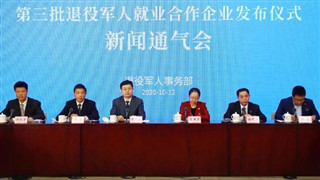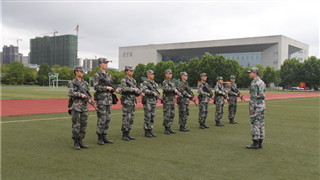By Milly, a private assigned to Tonga's ground force
A vast territory, a warm-hearted and friendly people – this used to be my impression of China. After coming to the country, I’m also impressed by its social stability and fast economic development.
I came to study at the Army Engineering University of PLA in September 2019. It was my first time in China, and everything here felt fresh and new for me. The numerous high-rises, the gorgeous neon lights at night – the whole society looks lively and vibrant.
In Tonga, my home country, most people make money off the land and by selling the grain they cultivate. I come from a family of six. My father is a farmer, and my mother is a housewife. My salary isn’t high, but it’s the most reliable source of income for the family.
When I study at the Army Engineering University of the Chinese People’s Liberation Army (PLA), I come to the knowledge that there used to be a lot of impoverished regions in China, where the villages have great difficulty in developing themselves because of bad traffic conditions and backward channels for the circulation of commodities. But today, China is known for its advanced road networks in both urban and rural areas and the smooth trade channels amongdifferent regions, which give a strong impetus to economic development.
Not long ago, the university organized us to visit the Shishanxia Village in Jingqiao Town, Lishui District of Nanjing, East China’s Jiangsu Province. Our visit to the village supply and marketing cooperative left a deep impression on me. I learned that the cooperative is like a department store that not only provides the materials needed for agricultural production and living necessities but also sells agricultural products as a platform of commodity circulation. Today the cooperative is the leading platform to sell vegetables and grain produced by the villagers, thanks to which the villagers no longer have to worry about sales and have earned much more.
As I grew up, whenever we needed money at home, my father would have to sell grain in the market. He set off at 5 am and could come back before lunch if everything went well. However,his time back home was anyone’s guess if he had difficulties selling the grain. Most of the time, he came back very late because there were too many sellers competing. It would be much more convenient for people like my father if there were such a cooperative in my hometown.
When we were at Shishanxia Village, I also noticed that the local specialties like rice cake and persimmon could be delivered via express mail. There was a QR code on their packages to facilitate the buyers. To overcome the impacts imposed by the COVID-19 outbreak on trade in goods, many villages across China have actively utilized e-commerce platforms to promote local specialties. I often see rural residents selling their goods through livestreaming on short video APPs.
As far as I’m concerned, with each and every single streaming marketing, placing order and express delivery, to name a few, e-commerce is pumping great vitality into China’s impoverished areas for their rejuvenation, and a growing number of people have got on the “digital express” that will take them from poverty to lead a beautiful and well-off life.
The delivery of every item of goods is supported by a powerful logistics system. I hope my country can draw on China’s experience, build sound logistics channels and e-commerce platforms, and help our countrymen achieve affluence and prosperity at an early date.
(Interviewed and organized by PLA Daily’s reporter Cheng Anqi and correspondents Chen Zhe and Zhang Yuandi)











